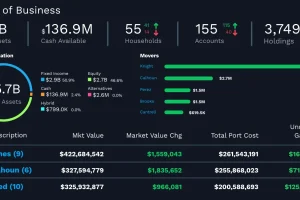When purchasing or refinancing a home, small changes in interest rates can have a major impact. That is why it’s essential to understand what factors determine your mortgage payment and how they might alter things for you.
If your mortgage has a variable rate, payments could increase due to changes in interest rates. More of your payment would go toward interest and less towards principal.
Changes in the interest rate
The interest rate on your mortgage determines how much you pay in monthly payments. Whether buying a home or refinancing an existing one, changing interest rates can make a substantial impact on your monthly payment amount.
In some cases, a slight shift in your mortgage interest rate can add up to tens of thousands of dollars more in extra expenses over the life of the loan. That’s why it’s essential to understand how changes to interest rates affect your financial picture.
Your mortgage lender’s funding cost is the primary factor influencing your interest rate. When lenders experience market stress, such as during the recent financial crisis, they can raise their costs to cover expenses.
Mortgage rates have been rising, and this trend is expected to continue. Securing a low rate now can save you money in the long run.
Changes in your loan terms
Interest rate changes can have an impact on your mortgage payment. Fortunately, if you have a fixed-rate mortgage, your loan terms won’t change since the interest rate remains constant throughout its entirety.
However, if you have an adjustable-rate mortgage (ARM), your interest rate can change at certain points during the course of your loan. Understanding these changes may be challenging so be sure to read your mortgage contract thoroughly.
The most common type of ARM adjusts once annually, though some may adjust more frequently. When this occurs, you’ll be informed in advance so that you can prepare your finances accordingly.
If your mortgage has an adjustable-rate structure (ARM), be prepared to pay a higher monthly mortgage payment when it comes time for adjustment. Your payment amount will depend on both the new interest rate and how much of your payments go toward interest.
Changes in your down payment
When it comes to home financing, the down payment is one of the most crucial components. Not only can it affect your interest rate and loan terms, but also how much each month you must pay in payments.
A down payment is an upfront, nonrefundable payment made by a homebuyer to cover the difference between the cost of the house and what they are borrowing to buy it. Typically, this amount ranges between 5%-20% of the home’s purchase price.
In the mortgage world, there are several components that make up a standard payment: principal, interest, taxes and insurance (PITI), plus any additional fees. You may also have to pay for escrow, appraisal or other costs as well. It’s wise to be familiar with all these costs before applying for a loan; doing so can help determine which option is most cost-effective within your budget. With the right mortgage in place, owning your dream home becomes a reality!
Changes in your credit score
If you’re a first-time homeowner, the effects of changing interest rates on your mortgage payment can be significant. A change in rates may make monthly payments unaffordable if you’re on a fixed-rate loan with a short term.
Your credit score is a three-digit number between 300 and 850 that lenders use to assess your likelihood of repaying loans and other debt responsibly. It’s based on information from the three major credit reporting agencies — Equifax, Experian and TransUnion.
Paying bills on time and keeping your balances low are the two primary elements that determine your credit score. Aim to keep revolving balances below 30% of credit limits, and avoid having multiple open revolving accounts with large balances.
Other important factors to consider include your age and the types of accounts you have. Demonstrate that you can responsibly manage both installment and revolving accounts, as well as recent activity.





